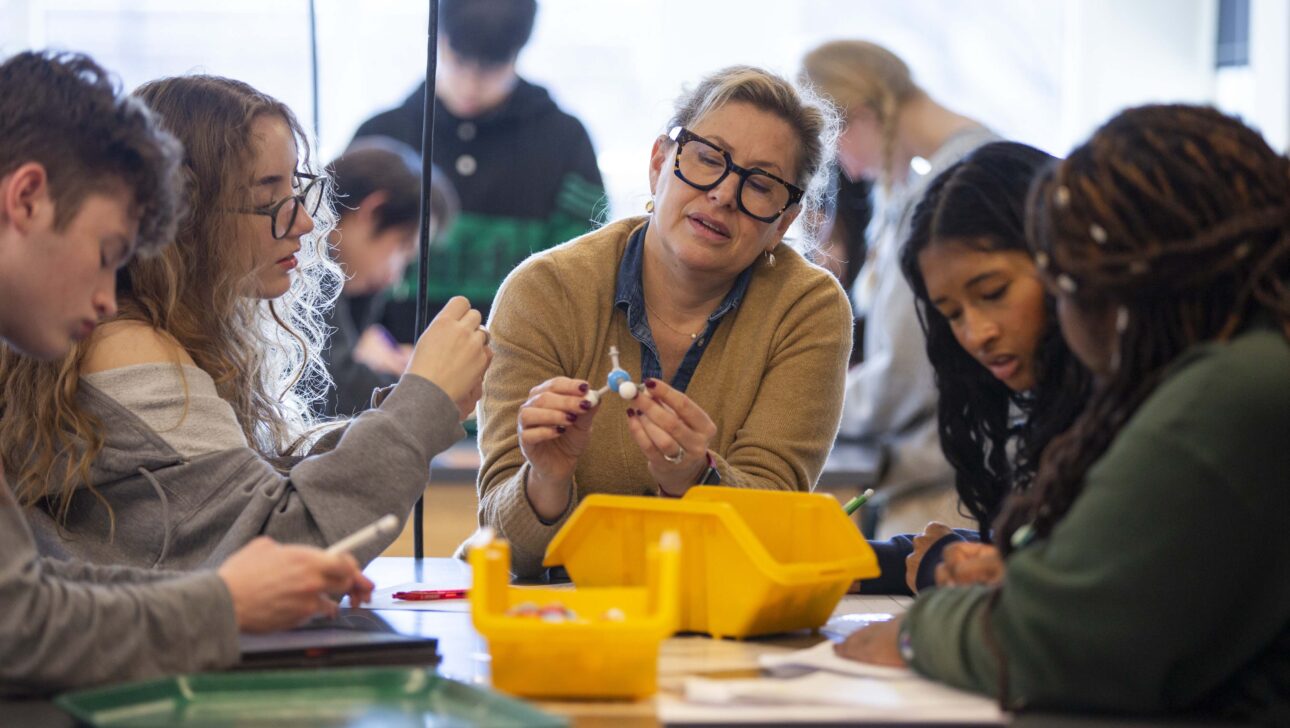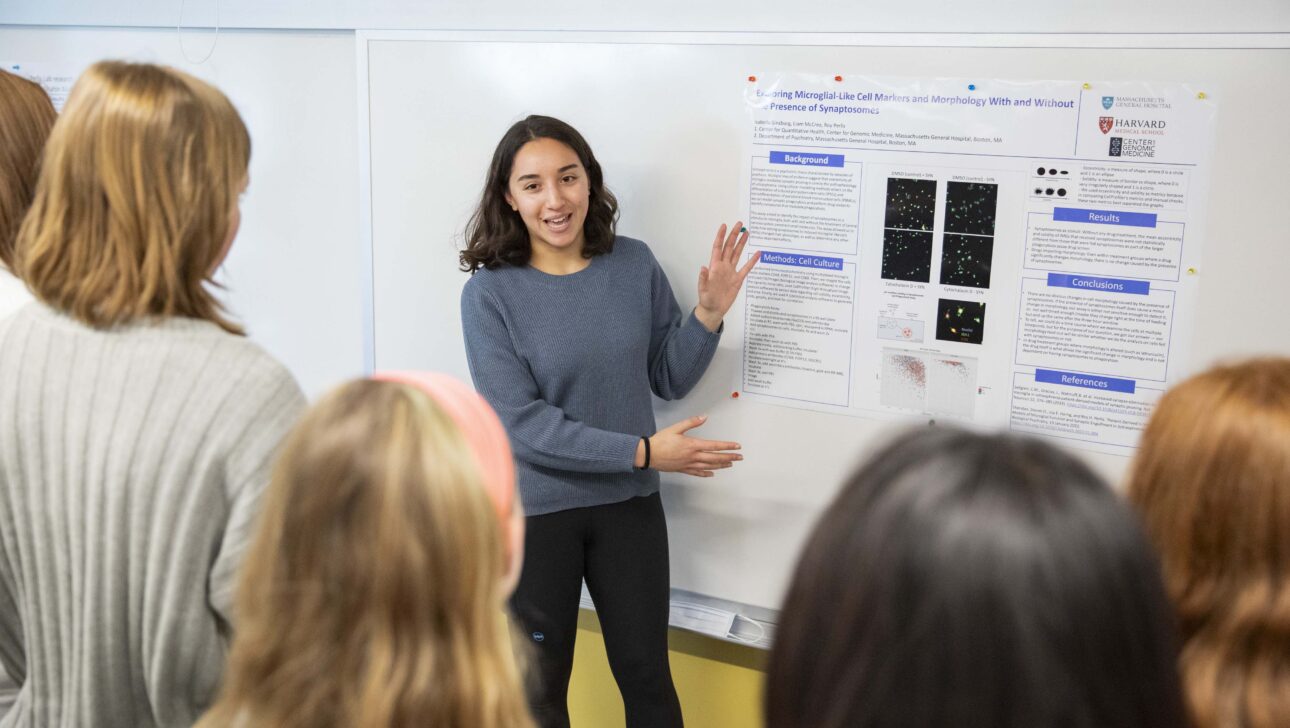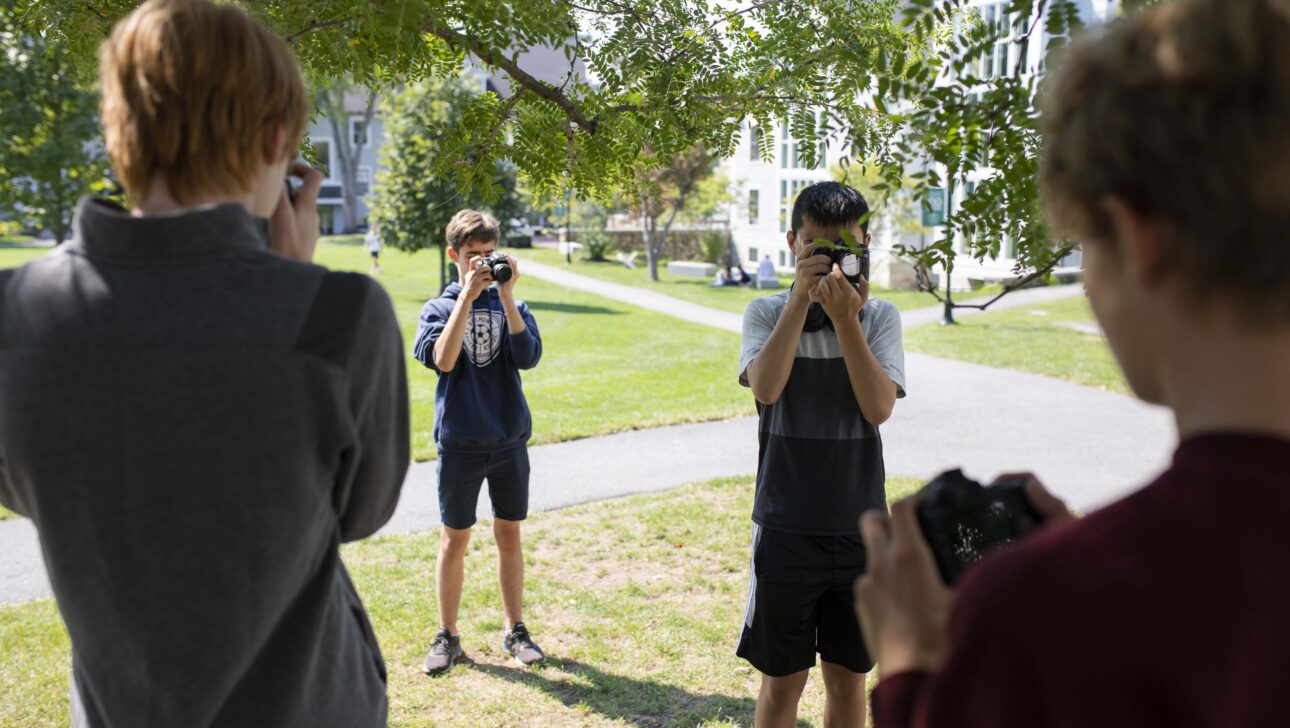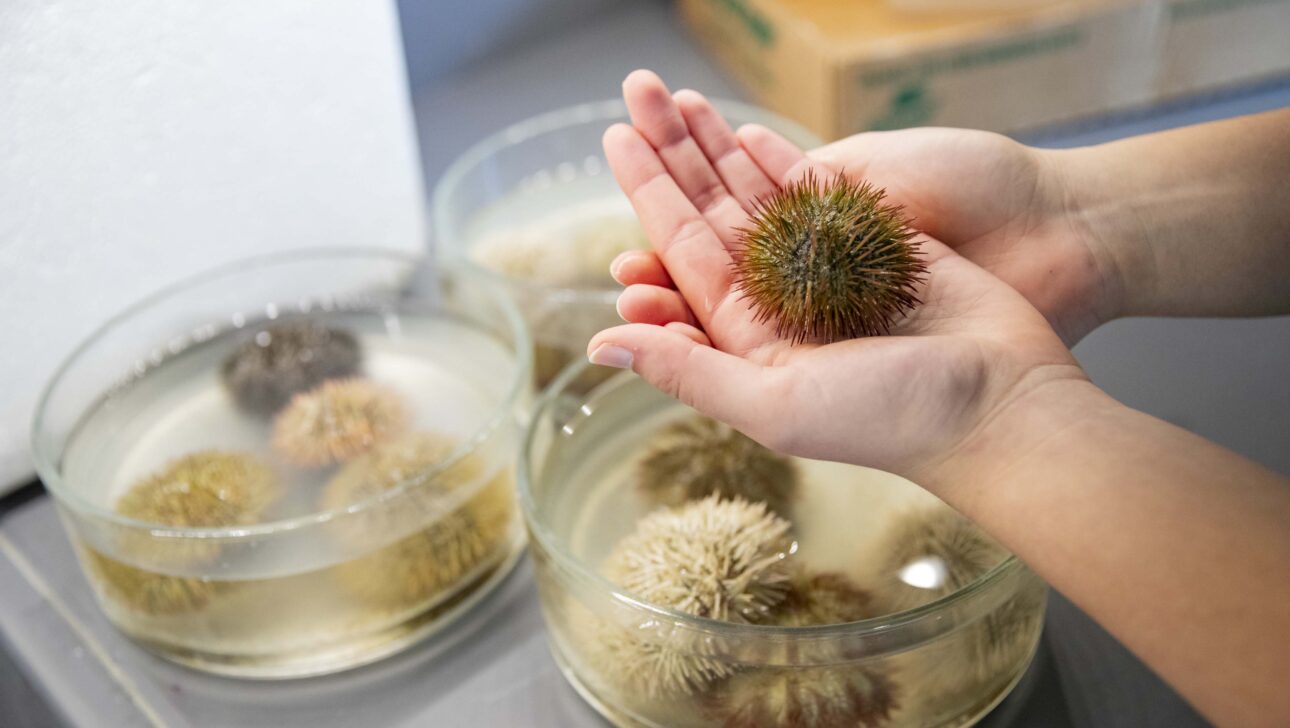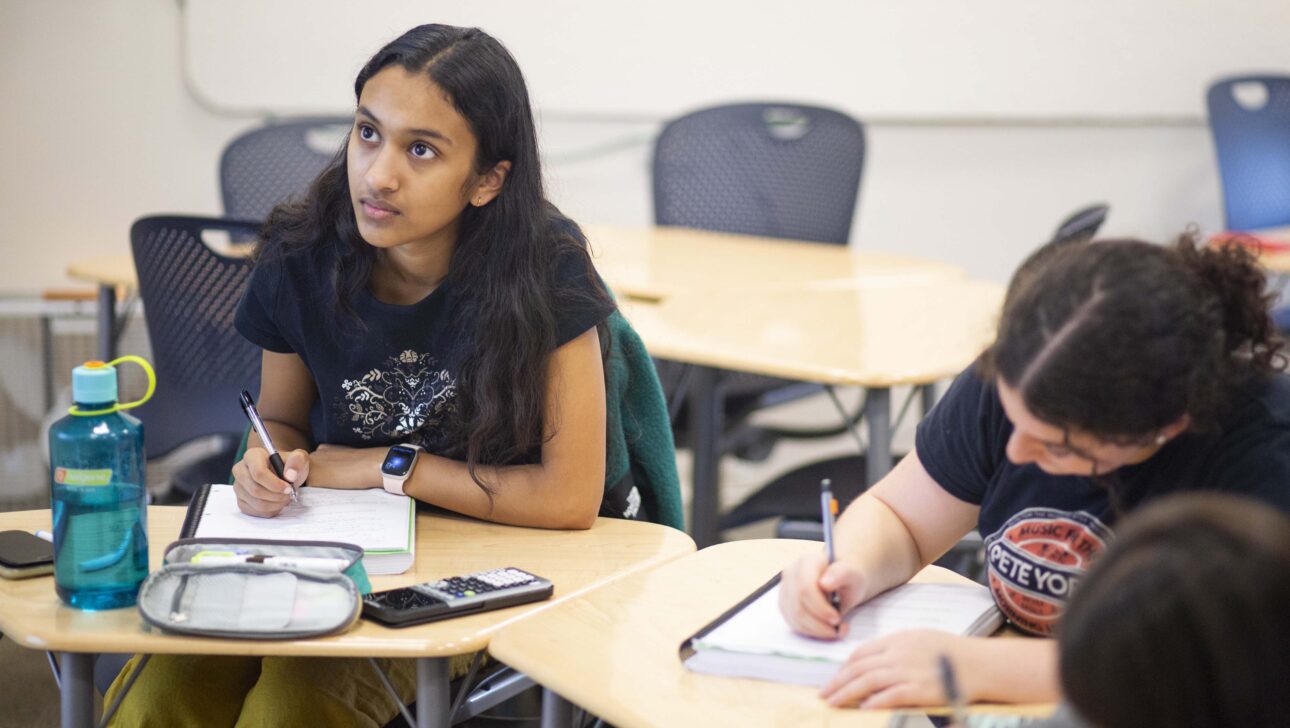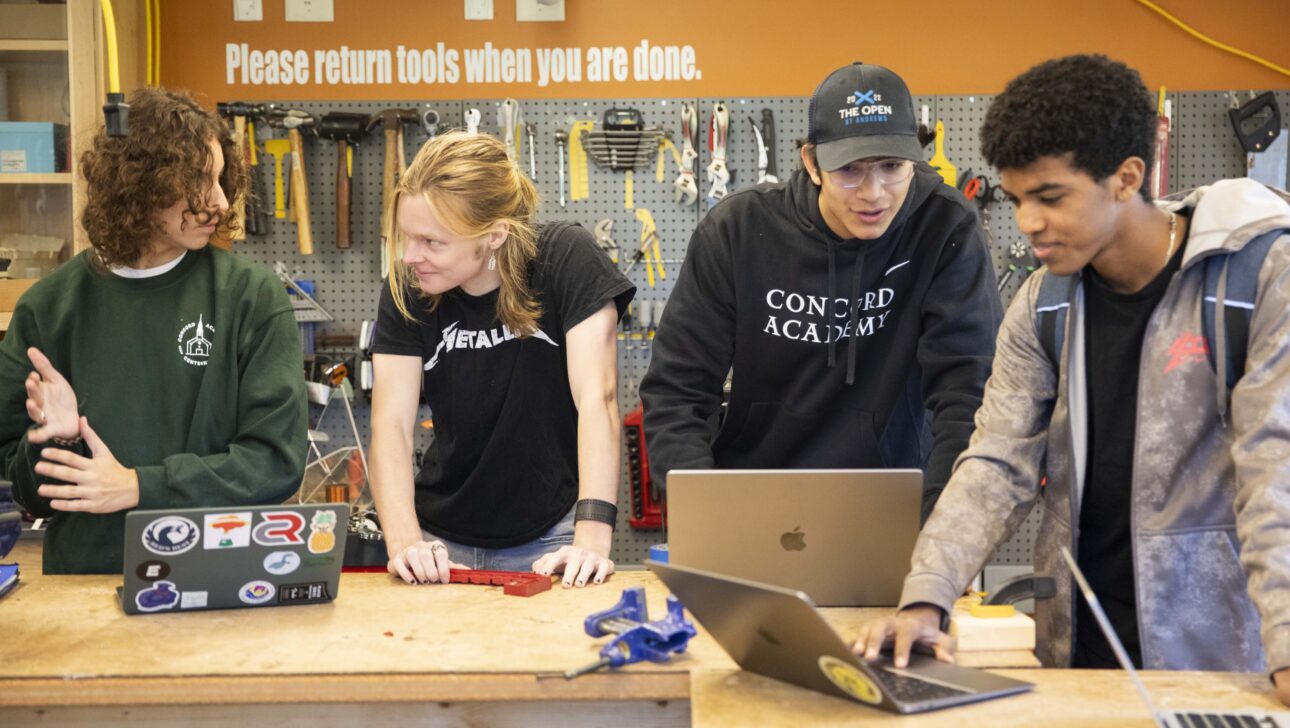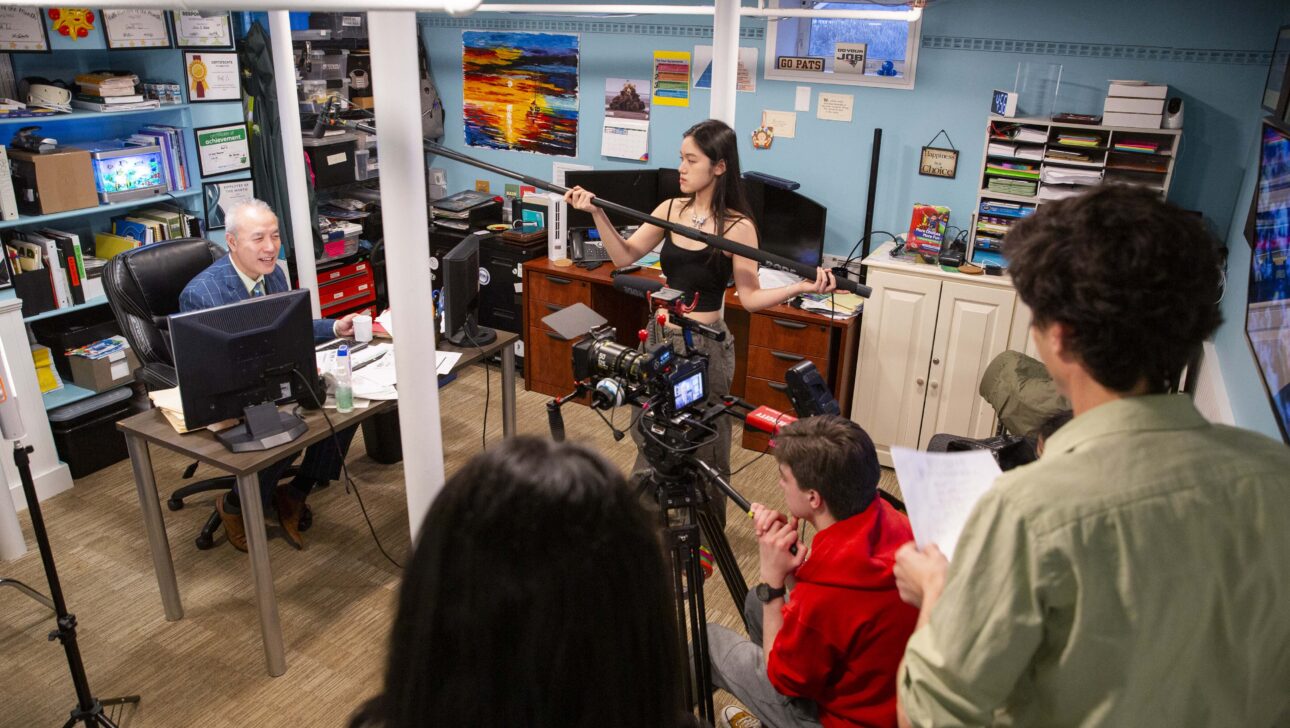Departments
At Concord Academy, we encourage you to pursue your intellectual interests within a framework of departmental skills and content.
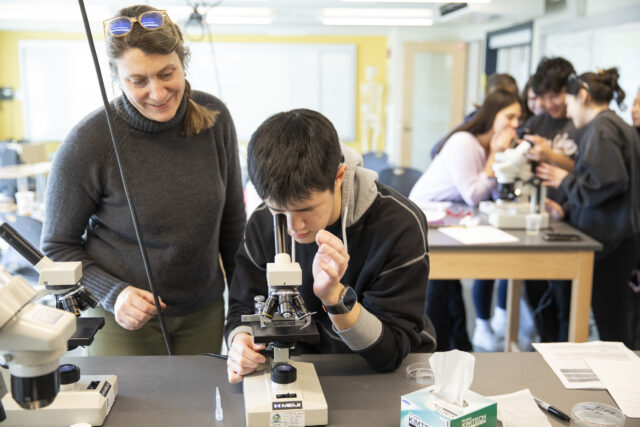
Department Overview
At CA, we encourage students to pursue their intellectual interests within a set of departmental requirements. CA’s curriculum comprises more than 230 courses in eight academic disciplines, plus a curricular athletics program. For information about each department, please read more below.
It’s no secret that computers have transformed the way we live and work. Yet how many of us are rooted in the languages, systems, theories, and structures of the technologies that are shaping our world? At Concord Academy, you’ll find cutting-edge technology just about everywhere on campus. But access is only the beginning.
For students who dream of developing apps, writing new programming languages, or starting their own web design firms, CA offers deep engagement in real-life scenarios. So you’ll have the tools to create that Photoshop masterpiece just for fun—or be well-prepared to move on to a school like MIT and a career in technology.
From theory and coding to graphic and web design, our approach to computer science is interdisciplinary, hands-on, and highly collaborative. We love that CA students bring passion to projects that excite them, and we recognize that some of the most creative work happens outside of class. Our expert faculty are available to guide and support informal exploration—in the computer lab before dinner, on a pair of laptops in the library, or in collaboration with other developers online. Teachers at CA are not afraid to try new things, and that’s vital in a field that will continue to shape our shared future in the years and decades to come.
Ben Stumpf
Computer Science Department Head
Email
(978) 402-2277
To question, consider, and debate. To read perceptively, write clearly, and argue persuasively. To experience life through the eyes of others and articulate our own thoughts with care and nuance. These are just some of the skills Concord Academy students develop by studying English during every semester of their CA education.
Our 9th- and 10th-grade curricula span common sets of ancient and contemporary texts that contend with definitions of home and explore questions of identity, power, authority, and belonging. Considering every story on its own and in conversation with competing texts and perspectives, students in their first two years at CA share a rigorous core reading experience. With a firm grounding in analysis and effective expression, our 11th and 12th graders pursue highly specialized college-level electives. Thanks to our location in Concord—the very town where Emerson, Thoreau, Alcott, Hawthorne, and Fuller transformed the American literary tradition—we offer our students direct access to the legacy of 19th-century transcendentalists. Engaging deeply with selections that range from the periods of the Bible, Dante’s Inferno, Milton’s Paradise Lost, and Wordsworth and Coleridge’s Lyrical Ballads to 20th- and 21st-century works by Kazim Ali, Roxane Gay, Kazuo Ishiguro, Toni Morrison, Claudia Rankine, Adrienne Rich, Danez Smith, Ocean Vuong, and Jesmyn Ward, among others, students recognize how texts shape themselves and others within an epoch as well as across time. Refracting literature through art, music, and film, they cultivate independent thinking and learn to synthesize ideas through various modes of collaborative inquiry.
Sabrina Sadique
English Department Head
Email
(978) 402-2391
From their very first semester at Concord Academy, students explore history broadly while pursuing their individual historical interests through our all-elective, semester-based curriculum. Choosing from histories of post-colonial Latin America, the U.S. presidency, global capitalism, empire and revolution in Africa, ancient and modern migrations, world soccer, the African-American experience, and more than 60 other thematic courses encompassing five continents and the world’s oceans, students dive deeply into local and global histories while making connections across contexts. By examining a diverse range of societies spanning millennia, students gain a deeper knowledge of how individual thought, collective action, the creation of institutions, and cultural expression reflect the complexity of human aspirations and experiences.
Students at CA learn from working historians who bring their own curiosity about the past to the classroom. Our faculty’s specialized knowledge and varied intellectual backgrounds introduce students to diverse ways of thinking about the past. Students have opportunities to pursue independent research with the guidance of faculty members, through capstone projects or, for students who exhaust our curriculum, departmental studies.
Our history students visit local museums and archives. They train as Concord tour guides. They analyze 18th-century newspapers, conduct oral histories, and dissect decisions of the U.S. Supreme Court. While content, chronology, and geography vary across our courses, students all have the experience of honing important historical skills: critical and historical thinking, research and writing, speaking and presenting. Students’ work with primary source analysis, historiography, and research methods allows them comprehensive preparation for advanced studies in the field of history. Our curriculum cultivates historically informed perspectives on past and present lived experiences, as we encourage students to be active, thoughtful, and engaged global citizens.
Jeffrey Richey
Interim History Department Head
Email
(978) 402-2478
What if you learned trigonometry by modeling the relative sizes of objects in a photo? Or statistics by studying the psychology of decision making? At Concord Academy, our experienced and passionate mathematics teachers challenge students to think critically and to learn by engaging in the world around them.
Our course progression emphasizes a logical and intuitive development of mathematical techniques that open the door to experiencing the creative aspects of mathematical thinking as well as the power to solve everyday problems.
By providing numerous pathways through the math curriculum, we meet individual students at their level of prior experience and interest. All students at CA learn data analysis, a crucial numeracy skill for the 21st century, and thanks to our flexible approach, most of them exceed departmental requirements. Older students might take college-level calculus or use economics tools to analyze rent control. Future engineers channel their curiosity in very advanced classes, such as abstract algebra and numbers theory. You might find juniors working together outside of class on mathematical games and puzzles, or seniors competing at the Harvard–MIT Math Tournament. At CA, we appreciate math’s foundational role in scientific study, and we approach the discipline collaboratively and creatively. We’ve found that curiosity can be one of our greatest tools.
Jessica Kuh P’27
Mathematics Department Head
Email
(978) 402-2326
Chatting in a café in Paris or a host family’s kitchen in Madrid. Setting foot in Rome’s Colosseum or Beijing’s Forbidden City. Or keeping up with a friend from Frankfurt. The world language you study at Concord Academy could take you to places that haven’t yet crossed your mind.
While schools across the United States are scaling back their language programs, CA remains committed to world languages as part of a 21st-century education. Our approach is practical and focused on proficiency—from speaking to reading, translating to writing, we want students not just to know the language but to use it.
We offer instruction in four of the world’s major modern languages—Spanish, French, German, and Mandarin Chinese—as well as in Latin. By making ample use of current technology in our teaching, we keep languages vibrant and meet students where they are communicating. In the classroom and through online resources and extracurricular activities, our students learn to think and engage in other languages. Many choose to spend a spring break, a semester, or a year studying abroad. In doing so, they come to understand other cultures from the inside, and they find firm footing for presenting their ideas in our international society.
Carmen Welton
Modern and Classical Languages Department Head
Email
(978) 402-2320
At Concord Academy, anyone can dance—or act, or sing, or play an instrument. With nearly 40 courses to choose from and 20 theater, dance, and music performances on campus each year, CA students can participate in the performing arts at every level of experience.
Programs in music, theater, and dance, as well as interdisciplinary courses, develop the skills necessary for students to progress toward greater mastery and self-expression. At CA, we encourage students to explore the world around them by questioning the conventional. Students synthesize the knowledge they’ve gained in other academic pursuits and in their personal lives, build skills through rigorous training and critique, and communicate new ideas and ways of understanding.
Engaging with the performing arts prepares students for success in all areas of their lives. Students learn individual expression within group pursuit, and they develop skills in collaboration and communication, creative problem-solving, improvisation, and working within structure—gaining self-confidence and finding inspiration.
Michael Bennett
Performing Arts Department Head
Email
(978) 402-2304
For some, it’s building a hovercraft. For others, it’s examining aquatic life while paddling down the Sudbury River. No matter what drives students to explore our world, they’ll find an avenue for deep engagement through the sciences at Concord Academy. Whether we’re running a student-designed chemistry experiment in the lab or debating the findings of a journal article, we involve students in a dynamic process of questioning and investigation.
The science department’s home, CA Labs, was completed in the fall of 2016. This center for interdisciplinary exploration doubled our science classroom and lab space and now gives the CA community—from science courses to clubs to theater productions—a dedicated maker space for laser and plasma cutters, 3D printers, and other CAD/CAM tools, along with conventional shop space.
With a green roof and sustainable design, DNA sequences and emissions spectra represented on the walls, and distance scales embedded in the floors, this playful and purposeful building is itself an inspiration. It’s also an invitation to creative, curious students and thoughtful, engaged teachers to collaborate in the exploration of what we know, what we think we know, and what we want to know.
Building on foundational courses in biology, chemistry, earth science, and physics, students have options to delve deeper into college-level work and specialty fields from engineering design to environmental science and sustainability to electromagnetic theory. We practice the ultimate challenges of the discipline: crafting questions and clearing paths to their answers.
Our students’ scientific pursuits extend beyond the classroom and into environmental symposia; student clubs with a focus on biology, chemistry, and engineering; and summer research internships at Boston’s cutting-edge labs and engineering firms.
Our students graduate from CA with the skills and knowledge necessary to be responsible and informed and to create positive change, whether as active global citizens or as professional scientists.
Will Tucker
Science Department Head
Email
(978) 402-2462
The click of a shutter. The white space of a canvas. The elegance of a blueprint. Whatever ignites the spark for you, Concord Academy’s visual arts teachers—all of them artists who love collaborating with students—feel it too.
They provide a structured approach to a flexible curriculum that allows students at all levels to thrive. With more than 30 studio art courses, unlimited studio access, and a state-of-the-art media lab, CA’s visual arts facilities invite exploration and inspiration.
From foundational courses in drawing and printmaking to intense studio experiences in painting and fashion design, the possibilities for studying visual arts at CA truly are as wide as you can dream. Many students initially explore a broad range of two- and three-dimensional art forms before focusing on, say, documentary filmmaking or wheel-thrown ceramics. In addition to studio instruction, most visual arts courses include lectures or screenings, group discussions, and critiques. First-level courses serve as introductions to a progressively challenging sequence of courses in subjects such as photography, architecture, digital graphic design, fiber arts, sculpture, screenwriting, art history, and film history, to name just a few.
Drawing on Greater Boston’s rich cultural scene, CA supports the study of visual arts with trips to artists’ studios and in-depth, behind-the-scenes engagement at museums such as the Museum of Fine Arts, the DeCordova Museum and Sculpture Park, and the Addison Gallery of American Art. At CA, the arts are embraced as a core component of the student experience, and students bring their creative passions to bear in nearly every class.
Justin Bull P’25 ’28
Visual Arts Department Head
Email
978-402-2322 (email preferred)
